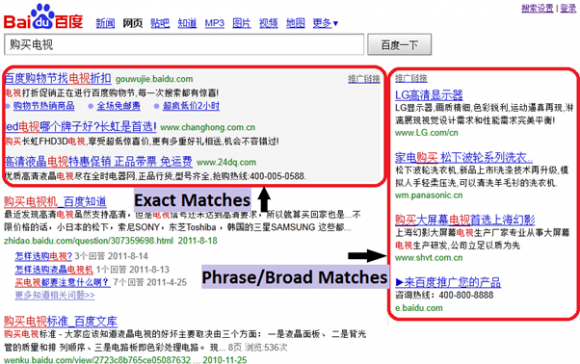I’m not sure if I’m just forgetful or if everyone else has the same problem; but I always find myself having to look up how match types work every time I use an advertising platform other than Google.
The point of this blog is to be a simple document to refer back to whenever you find yourself with the same problem.
To start off we will be reviewing how the match types work in Google AdWords:
AdWords
| Match Type | Information | Example keyword | Would be matched to search phrase of |
| Exact | Matches exactly that keyword, with no misspellings or extra words. | [wooden clogs] | ‘wooden clogs’ |
| Phrase | Matches the keyword with additional words before or after. | “wooden clogs” | ‘cheap wooden clogs”wooden clogs for fancy dress’ |
| Broad | Words can be any order, synonyms and misspellings will be picked up. Not all words necessarily will be included. | wooden clogs | ‘clogs made of wood”wooden shoes’
‘dutch clogs’ |
| Modified Broad | Matches the modified word with similar misspellings and plurals, but not as broad as normal broad match. All words must be included | +wooden +clogs | ‘wood clog”cheap clogs wood’
|
AdCenter
Adcenter is similar to Google, but not exactly the same.
Exact and Phrase matches work identically to Google. However, the broad match is a little different. We sometimes find that the traffic through the broad matches can be a little too broad in Google. I find Microsoft is generally a little more reserved as to how broad it will go.
One of the main things it does to achieve this is that is has to include all words in the keyword. Of course, it can be in the form of misspellings, plurals or synonyms of these words. But whereas a keyword in Google of ‘Sell mobile phone’ may just match to ‘Mobile phone’, AdCenter ensures that ‘Sell’ (or an equivalent of sell) would be included in the search phrase.
Yahoo
Yahoo’s match types can be really confusing at first. They use a ‘Standard’ and an ‘Advanced’ match type. These work as follows:
Standard is similar to an exact match in Google. However, it will include misspellings and plurals of words. So ‘mens formal shirts’ could be matched to ‘mans formal shirts’, ‘mens frmal shirt’ but not to ‘cheap mens formal shirts’ as we are not allowed any additional words.
Advanced match works in exactly the same way as AdCenter’s broad match. So it can include synonyms, misspellings and plurals. But it has to include every word in the keyword.
Baidu
Just to give an introduction to Baidu for those who are unfamiliar; Baidu is the largest search engine in China and offers a very similar service to AdWords. As a multilingual agency, we are using Baidu more and more lately so it is important to be familiar with how it works. For anyone else wanting to advertise in Baidu, I’d highly recommend using Baidu Editor. The interface is in (broken) English. This makes everything much easier to manage if your Chinese isn’t quite up-to-scratch.
The match types work very similarly to Google: broad, phrase and exact. However, one massive difference is that only the exact matches will show above the natural listings. So it is always worth running all keywords on an exact match so that the better CTR’s from the top positions can be achieved.

To follow on from this I will be doing a post on how negative keywords work in each of the platforms.


